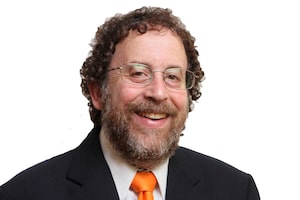Vacations are back as concerns over COVID-19 and travel decline. And with that comes the challenge of dealing with far too much e-mail on your return.
Start even before you leave by preparing for that avalanche. You’ll of course want an auto-reply indicating you are away and perhaps even going so far as to announce you won’t look at any forwarded to you during the interval. More delicate would be to suggest folks consider e-mailing you again close to your return so their e-mail will rise to the top of your stack or a message like this: “I expect my inbox to be bursting at the seams when I return. I’ll do my best to get back to you, but if I should happen to miss your message, please do me the courtesy of following up after” a given date.
Don’t write your auto-response on auto-pilot; it requires some thought. “The goal of an out-of-office message is to decrease stress, not add more. Buy yourself time to respond and don’t make promises to reply right away,” observes writer Monica Torres. Dmitri Leonov, co-founder of Sanebox, even recommends setting your auto-responder to expire a couple of days after you get back from vacation. That allows you extra time to return to normal.
Katherine Sauer, a systems change consultant, suggests creating a series of folders before you leave to direct vacation e-mail away from your inbox on your return. For example, Boss for those all-important e-mails or Project Bravo for a key project you are working on. To have those folders rise to the top of her file list she uses the @ symbol – for example, @boss.
“When it comes to setting the rules for these folders, some will have e-mails coming from only one source (for example, my boss) while other folders will have e-mails coming from multiple sources (my staff members or a projects folder). If you know e-mail from an individual will fit into multiple folders, you might consider creating a separate folder for that person (for example, @Valerie) and then manually sort it after vacation. You can also use keywords, but I personally prefer to set rules by sender,” she writes on her blog.
Then you can enjoy yourself, perhaps not even looking at your inbox while away (you can set up a special vacation account for friends and family to reach you during that period).
The return begins with triage: Skim the messages in each folder to look for anything that is on fire. “During triage, I do a lot of sorting but not a lot of responding. I’m mostly getting the lay of the land and starting to plan out what will need my attention the rest of the day,” says Ms. Sauer.
She recommends initially focusing on the inbox because your boss and colleagues know you have just returned and are digging out, so are not expecting an immediate response. Your inbox has random and unexpected messages that could be more pressing, although a lot will be announcements and solicitations. The latter can go to a ‘Read Later’ folder created now or even before you leave.
Get the full picture of what’s before you before getting into replies – even short ones, she advises. “As a general rule, every 10 minutes and when I finish triaging a folder, I stop and take a stretch and a deep breath. Otherwise it is easy to get frantic and tense as I speed through my e-mail,” she says.
Once you’ve triaged your folders and know what is more pressing, you can begin replying, by priority, deleting the special folders when you empty them. It’s a sensible system for getting back to normal in an organized fashion rather than a frenzy.
Quick hits
- Kingston productivity coach Chris Bailey says there are two types of busyness: Moment-to-moment busyness, when your schedule is crammed and your mind pressed to keep up with everything, and overall busyness, which reflects the number of projects and commitments you have taken on. Distinguish between them and minimize how busy you are in the moment while taking on new projects and commitments that prove meaningful overall.
- Make sure you’re not too busy to be happy. Take time to be happy every day, even if that’s just a five-minute stress break when you close your eyes and visualize a happy place and time, advises Toronto-based executive coach Irene Becker.
- Marketing consultant Drew McLellan points out that in times of turmoil people have an urge to return to simpler times. That trend was showing even before the upheavals of the past two years. In your advertising, this might be a smart time to talk about your brand and your values.
- An old-fashioned idea consultant Steve Keating still embraces is that people who accept paycheques from a company should figure out for themselves how to stay engaged – accepting that payment obligates them to keep themselves engaged. Don’t wait for your boss or someone else to make you happy and fulfilled. You have the power to keep yourself engaged.
Harvey Schachter is a Kingston, Ont.-based writer specializing in management issues. He, along with Sheelagh Whittaker, former CEO of both EDS Canada and Cancom, are the authors of When Harvey Didn’t Meet Sheelagh: Emails on Leadership.
Stay ahead in your career. We have a weekly Careers newsletter to give you guidance and tips on career management, leadership, business education and more. Sign up today.
 Harvey Schachter
Harvey Schachter